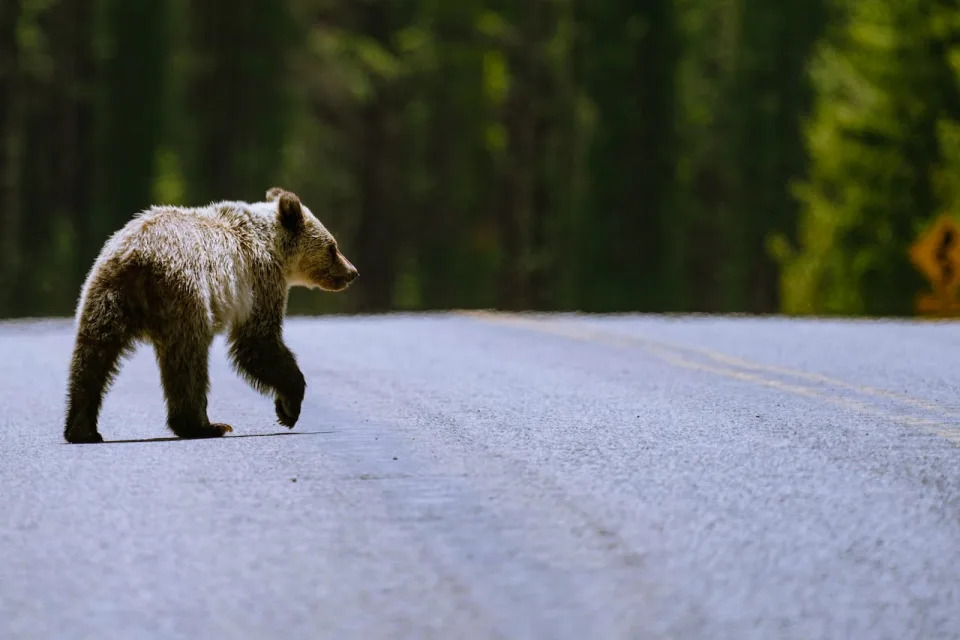CBC
Thu, January 4, 2024

The Carnivores and Communities Program aims to teach farmers how to live alongside grizzly bears and prevent unnecessary interaction. (Anne Woods - image credit)
The provincial government announced Wednesday its spending $700,000 over five years to prevent conflict between ranchers and large carnivores in southwestern Alberta.
Funds will go to the Waterton Biosphere Reserve Association's Carnivores and Communities Program to keep predators away from rural properties.
Residents in the area have expressed concern about growing grizzly bear, wolf and cougar populations and their impacts on community safety, says the province.
"Coexisting with wildlife, including large carnivores, is an everyday part of living and working in rural Alberta," said Alberta's Minister of Forestry and Parks Todd Loewen in a statement.
"This investment will help protect humans, wildlife and infrastructure."
The majority of human-wildlife conflicts in the Waterton Biosphere region are attributed to wolves and grizzlies, according to the reserve association.
Conflict arises because the animals are attracted to livestock, grain and animal feed, and roam onto farms to chow down.
Dead livestock disposal and electric fences
To keep the carnivores away, the Waterton Biosphere Reserve Association has helped farmers manage attractants by picking up dead farm animals for free and pointing people to carcass-disposal bins in their area.
"Across the region, I'd say we've seen a generally positive trend," said Carnivores and Communities Program co-ordinator Jeff Bectell. "But it's not perfect and not 100 per cent [successful]."
The CACP also advocates for strategies to keep away grizzly bears based on landowners' specific needs, like livestock guardian dogs or horseback herd supervision.
If necessary, the program also helps farmers pay for electric fences or more secure grain bins to quash access to food sources.
"We don't do the same project on every property because different people have different needs in terms of the amount of stuff they're storing, how they access it," said Bectell.
"There's just lots of differences from one farm to another and so it is pretty customized."

A Grizzly bear and cubs were spotted alongside Highway 40 in Peter Lougheed Provincial Park on June 15, 2021, the day the road to Highwood Pass reopened for the summer.
Wildlife ecologist Andrea Morehouse said some bears are being found further east in southern Alberta, in areas previously considered outside grizzly territory. (David Gray/CBC)
Grizzlies moving further east
In the past several decades, grizzlies bears have been recorded farther east in southwestern Alberta, outside their expected range.
Wildlife ecologist Andrea Morehouse, who has worked under contract for the Waterton Biosphere Reserve Association, says the easterly bears are exposing more farmers to the potential for human-wildlife conflicts.
"If you're not used to ranching with grizzly bears, it's certainly a new problem that you need to figure out how to deal with, and learn ways to share the landscape with those critters," she said.
"That's part of what the Carnivores and Communities program is doing … helping to find creative solutions so that people are able to maintain their business, ranchers can still do what they need to do, but bears are also maintained on the landscape."
Morehouse said the most current data on grizzly bears in the Waterton Biosphere region, collected from 2011 to 2014 for her Southwest Alberta Grizzly Bear Monitoring Project, showed the population was growing, which could be why some are ranging farther east.
Bectell said the funds will help rural ranchers feel supported and appreciated for their contributions to the province.
"Landowners dealing with these kind of problems sometimes feel alone," he said.
"When funding like this is provided, that does come out of the public purse, I think it demonstrates to agricultural producers that they're not being left alone and ignored."
The Alberta government has supported the Carnivores and Communities Program through different grants since 2009.
No comments:
Post a Comment